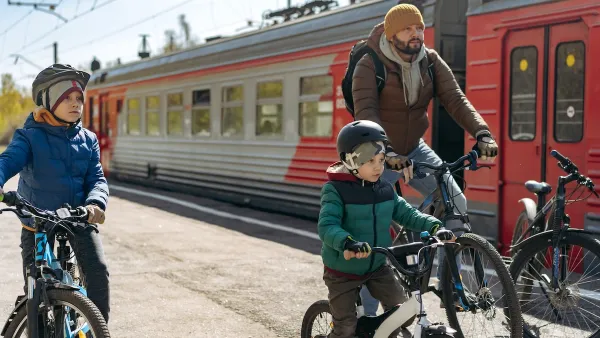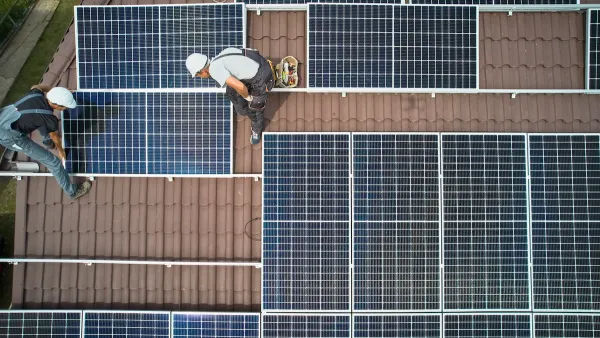A new Harvard Business School report lays the economic and equity case for fracking—through direct and indirect job creation, America's middle class is reaping substantial wage gains and reduced energy costs. Renewables are also discussed.
NPR correspondent Chris Arnold doesn't begin the interview by discussing fracking with the report's author, Harvard economist Michael Porter, but with the state of the American economy today. [Listen here or download].
There's a serious problem in the American economy: Big corporations are doing well, but real household income for average Americans has been falling over the past decade — down 9 percent, according to census data ["Income and Poverty in the United States: 2013 Current Population Reports" (PDF)].
Porter believes that fracking is part of the solution to increasing household income, and to ignore it would be a grave error.
"It is a game changer," Porter says. "We have estimated that already, this is generating a substantial part of our GDP in America..."
Looking not just at drilling jobs but at all related jobs — truck drivers, truck manufacturers, petrochemical engineers and more — Porter says the rise of fracking has added 2.7 million jobs to the economy, most of them with good wages.
From the report:
America’s unconventional gas and oil resources are a once-in-a-generation opportunity to enhance the nation’s economic competitiveness while minimizing environmental impacts, and making major progress toward reduced greenhouse-gas emissions. But there is a real risk that American citizens, companies, and communities will fail to capitalize on this opportunity because of misunderstanding and distrust.
Fracking also benefits all consumers by reducing energy prices, claims Porter. "The average household is saving about $800 a year," he says, much of it in passed-on savings from lower-priced consumer products, writes Arnold. "And his research suggests that figure may keep rising in the next 15 years."
Porter concedes energy companies are partially responsible for the American people's distrust of fracking "by failing to partner with environmentalists at the start to reduce fracking's impact," adds Arnold.
Wind energy developments are also explored in the article. Porter adds a caveat: "Many people believe that somehow, if we take advantage of these oil and gas resources, that will stop renewables in their tracks," he says. "That turns out to be just wrong."
FULL STORY: America's Next Economic Boom Could Be Lying Underground

Analysis: Cybertruck Fatality Rate Far Exceeds That of Ford Pinto
The Tesla Cybertruck was recalled seven times last year.

National Parks Layoffs Will Cause Communities to Lose Billions
Thousands of essential park workers were laid off this week, just before the busy spring break season.

Retro-silient?: America’s First “Eco-burb,” The Woodlands Turns 50
A master-planned community north of Houston offers lessons on green infrastructure and resilient design, but falls short of its founder’s lofty affordability and walkability goals.

Test News Post 1
This is a summary

Analysis: Cybertruck Fatality Rate Far Exceeds That of Ford Pinto
The Tesla Cybertruck was recalled seven times last year.

Test News Headline 46
Test for the image on the front page.
Urban Design for Planners 1: Software Tools
This six-course series explores essential urban design concepts using open source software and equips planners with the tools they need to participate fully in the urban design process.
Planning for Universal Design
Learn the tools for implementing Universal Design in planning regulations.
EMC Planning Group, Inc.
Planetizen
Planetizen
Mpact (formerly Rail~Volution)
Great Falls Development Authority, Inc.
HUDs Office of Policy Development and Research
NYU Wagner Graduate School of Public Service




























